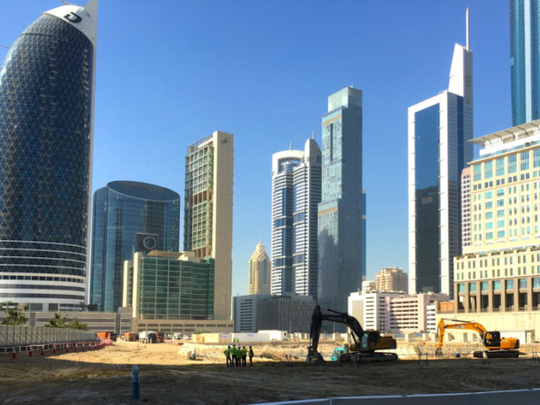
In the growing world of technology, office occupiers want smart automation and artificial intelligence (AI) to be introduced in their work zones. Over the next decades, corporate real estate will witness a major transformation to meet the digitalization demands of businesses that are driven by the rise of the internet of things (IoT), robotics and technological innovations.
According to a recent JLL report, Workspace, reworked: ride the wave of tech-driven change, the impact of technological advancements on workspaces and real estate investment strategies will result in the creation of new offices places that will be flexible and adaptable in a rapidly changing, highly connected world.
The insights from the report include the emergence of new types of platinum prime spaces that are grade A buildings in top-tier locations, designed to suit employees of the new business world. Real estate portfolios now are more likely to be built around core hubs and will comprise fewer locations, thanks to the combination of a changing workforce and greater connectivity.
The report also points out that the next generation of smart buildings will become the vehicles to manage productivity, sustainability and user experience.
According to Craig Plumb, head of research at JLL Middle East and North Africa, “Changes in technology and organisational structure are having a profound impact on real estate markets across the world. Nearly all the case studies and examples of best practice that JLL refers to in its recent report are located in the US, Western Europe or the Far East. There are currently few truly global best practice workplaces in the UAE — or indeed in the broader Middle East region in general.”
In its report, JLL notes buildings in Dubai that are adopting some of the smart building technologies being seen elsewhere. These include One Central in Dubai World Trade Centre and U Bora Tower in Business Bay. While none of the existing offices meet global best practices, this situation may change over the next decade, with a new generation of office buildings seeking to provide quality space on par with those in other global cities. An example is ICD Brookfield Place, where the developer, Brookfield, is seeking to create a quality of space in line with its currently offerings in other global financial centres.
Present structure
Dubai has a range of quality office buildings, however, Plumb says these do not meet the requirements of many modern global occupiers. “The clearest indication of this is that some leading organisations have recently scoured the market for new offices, but have not found any existing buildings that meet their requirements and have therefore pursued build-to-suit [BTS] projects specifically for them,” says Plumb. “Examples of this trend include HSBC, Standard Chartered and Mashreq Bank, along with GE.”
Smart vision
Gary Walsh, commercial manager at Exclusive Links Real Estate, believes Dubai is fully capable of building a smart city. “As we head towards the World Expo, we will see the words ‘green’ and ‘smart’ used more frequently,” says Walsh. “As a business hub of the world, Dubai will need to continue to offer a point of differentiation and compete with other futuristic business environments around the world.
“All companies are looking for the most cost-effective and environment-friendly workplace — but at what cost? Grade A, top-tier platinum offices will need to be available but there will also be demand for affordable spaces. We will also see employees work more remotely from home or be sitting at smaller ergonomically designed workstations. Buildings will need to provide faster communication, more sensitive security and high-end facilities.”
Market limitations
Keeping in mind global office trends, the following are few of the challenges in the UAE property market:
Global teams. Alia Jamal, head of leasing and commercial at Gulf Sotheby’s International Realty, says marketing departments of firms are now scattered in different cities globally such as Sydney, Singapore, London and New York, rather than being in the same city. She says there is a need for offices to offer a seamless platform for workers from around the globe to collaborate in real time. “Cisco’s High Five is being used by many global companies, keeping an audio-visual portal open at all times,” says Jamal.
Work from home model. Jamal says a formal office set-up is no longer required in many situations since teams now comprise a single person per country. “This global nature of the workforce may create challenges when interfacing with UAE labour laws and business licence requirements,” says Jamal. “The fixed cost of housing, daily expenses, business licence and hot-desk result in a substantial investment for global operations to keep a permanent presence in Dubai. Many firms are in fact finding it cheaper to fly people in and out for meetings with local customers and suppliers rather than establishing a branch office.”
e-Commerce companies. Jamal says the greatest challenge in the office sector over the next 5-10 years is that companies are doing more with fewer people. “Instagram had only 13 employees and 30 million users when it was acquired by Facebook in 2012 and received $60 million in investment. With the advent of e-Commerce companies such as Noon.com entering the market, we need to be prepared for similar business models to proliferate locally,” says Jamal.
Flexible co-working arrangements. Plumb considers the current regulatory environment in the UAE the greatest challenge in introducing a more flexible working arrangement. “Both free zone and onshore businesses currently require leasing a certain level of office space per person, which limits their ability to use flexible co-working arrangements,” says Jamal.












